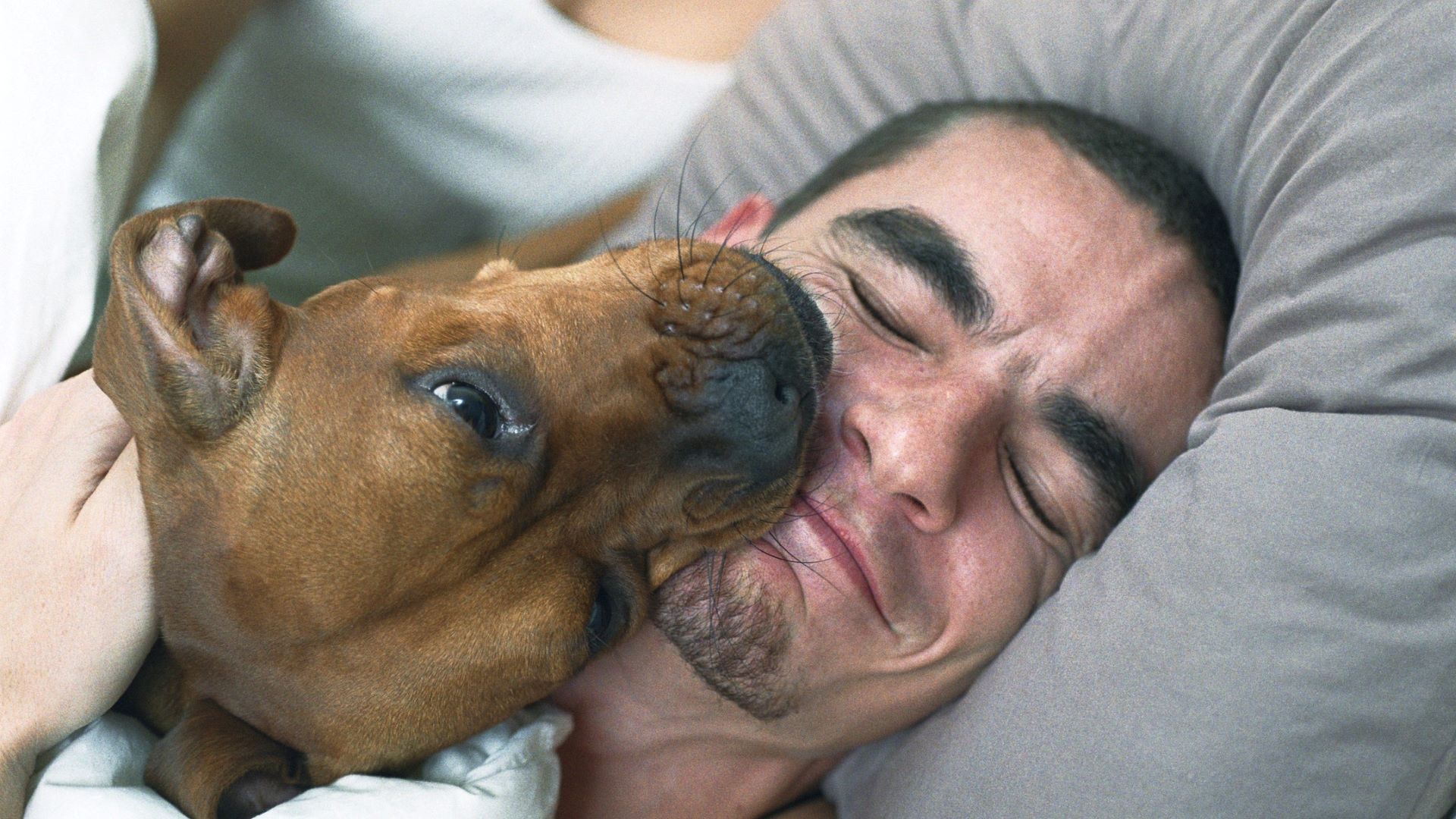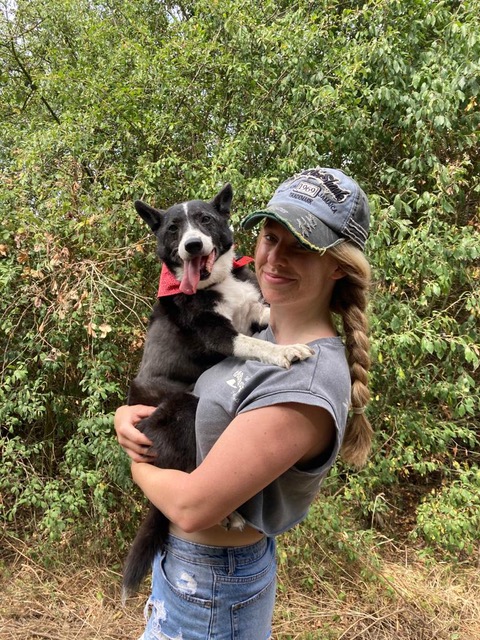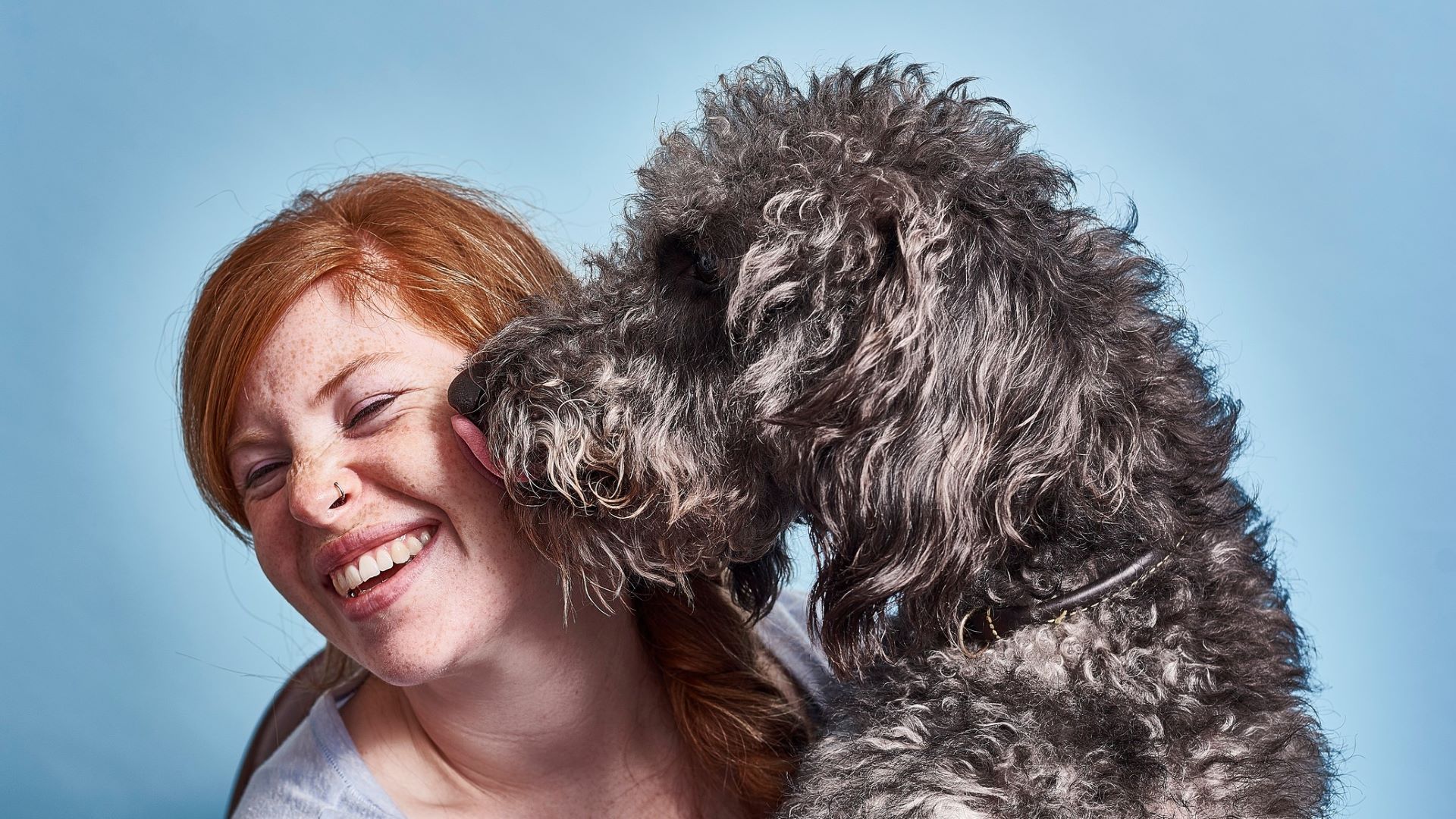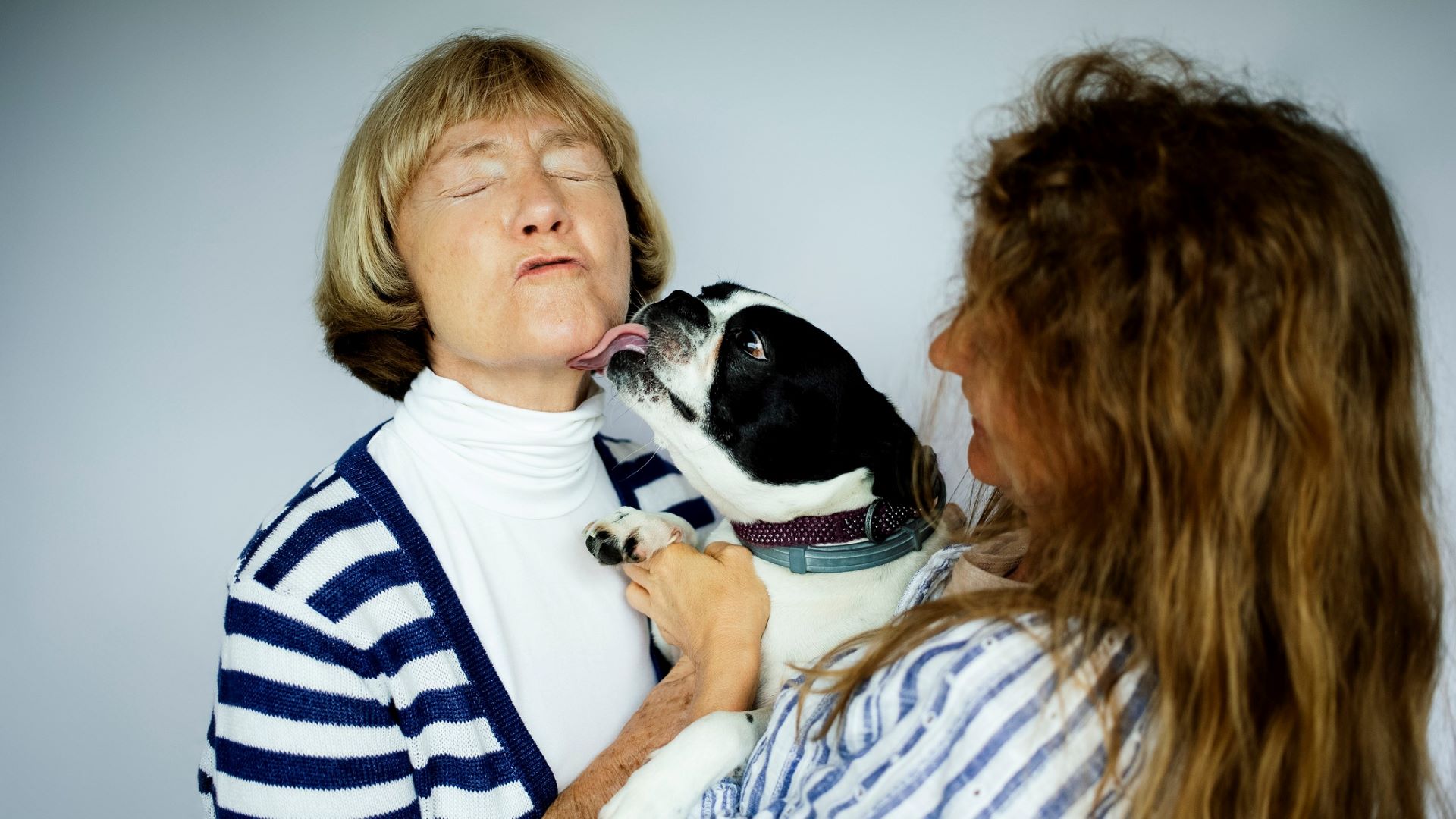I love my dog but hate when he licks my face - here’s how I stopped this behavior
'A cuddle is one thing, but when your dog licks your face it can be a step too far.' Owner reveals how she handled excessive face licking

My Old English Sheepdog, Bear, is a big dog, and he’s very affectionate. Such a big dog gives big cuddles, but as much as I love him and love how affectionate he is, when he licks my face I find it kinda gross! As I said, he’s a big dog and one lick from Bear can cover my whole face, so when he wants attention, it’s always been difficult to stop him from slobbering all over me.
The first step in stopping any unwanted behavior from your dog is understanding it, so the first question to ask is, why is my dog licking my face?. There could be a few reasons for this behavior, including anxiety in dogs and dementia, but Bear is only four and I’m pretty sure he does it for attention, to be affectionate, and perhaps for approval.
So, the next step was asking if this is really a problem behavior or if it’s just me who doesn’t like it?

Anna works as a small animal vet in Hertfordshire, having graduated from the Royal Veterinary College. She loves surgery, and especially enjoys performing more complicated soft tissue and orthopedic procedures while studying towards her advanced surgical qualifications. Anna also works as a vet for Everypaw pet insurance, helping with claims queries and commenting on veterinary topics for many publications. Anna has several pets, including a bearded dragon and a tank of tropical aquatic life.
Should you let a dog lick your face?
While it might seem like your dog is giving you a kiss, and you might even like the affection from your dog, you shouldn’t let them lick you anywhere near your eyes, nose, or mouth, due to the risk of infection. Just think about where their mouths have been all through the day and you’ll soon feel as grossed out about it as I did!
Dr Anna Foreman, a small animal vet, explains why. “Dogs shouldn’t be allowed to lick our faces. As cute as ‘kisses’ are, a dog’s saliva contains bacteria which can make us ill if ingested. Immunocompromised people, such as the very young, very elderly, or those with immunocompromising disease such as cancer, are more prone to infection from a dog’s saliva, however to minimize the risk, dogs should be discouraged from licking any human’s face.”

Here’s what I tried to stop my dog from licking my face
Trying to change any behavior in our dogs isn’t easy, and when it comes to licking there’s the added ‘cuteness’ of it. He’s only trying to give affection, I always thought, and stopping him from doing this felt a bit mean of me, but I knew I had to stick to my guns and nip this habit in the bud. At first, I tried occupying him with something else, this being some of the longest lasting dog chews. While these did keep him busy for quite a while, it didn’t stop him from licking my face when he wanted my attention and when he came for a cuddle. It was a distraction, but it didn’t alter his behavior.
“The best way to train a dog not to lick your face is through ignoring the behavior,” says Dr. Foreman. “Dogs hate to be ignored, and see being ignored as a type of punishment. A human should push a dog away without any fuss if they lick their face, and once the dog is settled again, be rewarded for the calm behavior with a treat. If a fuss is made of a dog licking faces, they will see this ‘fuss’ as a positive reinforcement.”
Get the best advice, tips and top tech for your beloved Pets
I won’t lie, pushing Bear away when he wanted to lick my face was hard. But after a couple of weeks of ignoring his licking, I started to see a change. He now understands that when I push him away and say ‘no’ to this behavior, I’m telling him to stop doing it. He’s learned that when I do this, he’ll get attention from me by not licking.
It’s a natural reaction to pet and cuddle our dogs when they lick – we’re giving affection back – but sometimes one whiff of Bear’s stinky breath was enough to remind me why I hate him licking my face so much. Dr. Foreman has some advice regarding bad breath and oral hygiene for our dogs, which could minimise the risk of infections if your dog does lick you. “Cleaning a dog’s teeth regularly will also help to decrease the bacterial load. this should be performed with a dog friendly toothpaste and soft toothbrush. There are other additives for the water and food which chemically reduce bacterial load, and dental foods have specially shaped biscuits which, when crunched, help to clean the teeth.”
You can also check out our advice on pale dog gums to understand your canine’s oral health a little better.

Is it unhygienic?
It turns out I wasn’t being over dramatic when I found Bear licking my face a bit gross. There’s a good reason for it. Our dogs’ mouths are not as clean as we might like them to be, for various reasons, and we shouldn’t let their saliva come into contact with our faces.
“Pasteurella is one of the types of bacteria in a dog’s mouth and its infectious potential is enormous,” says Dr. Foreman. “If a dog bites a human or other animal and the wounds become impregnated with the bacteria, infection can occur, leading to the sloughing of huge patches of tissue from a relatively small wound. Similarly, if a dog licks a wound on itself, whether accidental or surgical, infection of the wound will occur which will impair healing. This is why it is always recommended that a dog wears a buster cone or medical t-shirt if they have a wound. If a dog has periodontal disease, which the vast majority of dogs do, as they do not have their teeth cleaned daily, the potential for infection with Porphyromona bacteria (the ‘bad breath’ bacteria!) is high.” If you’re worried about your pup’s oral health, check out these vet approved tips to prevent and treat dog gum disease.
And what we feed our dogs can also contribute to bacteria and other infectious elements of their saliva. If you feed your dog raw food, bacteria in the mouth can include salmonella and campylobacter, the food poisoning bugs. In other countries, dogs can transmit the rabies virus through their saliva. Although it’s not prevalent in the US and UK, this should be taken into consideration when a person is on holiday and contacting local dogs. The worry is, if you allow your dog to lick your face at home, you might not think there’s anything wrong with it when you encounter a dog abroad.

Samantha is a freelance writer from Sheffield. She writes about pets, health, travel, and food & drink for publications like Woman & Home, The Independent, Reader’s Digest, and Lonely Planet. Samantha has been a freelance writer for 18 years and loves finding new stories and new places to write about. When she’s not writing she’s usually spending time with an excitable old English sheep dog and an even more excitable sheepadoodle! And she also loves writing about them!
